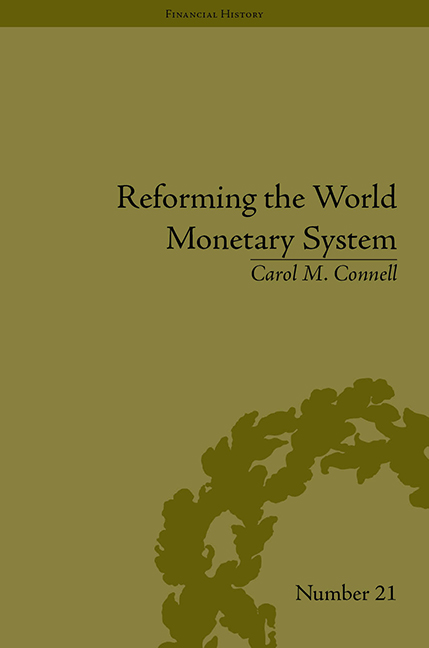Book contents
- Frontmatter
- Contents
- Acknowledgements
- List of Figures and Tables
- Introduction
- 1 A Crisis in Confidence
- 2 Fritz Machlup, his Research and Methodology
- 3 Robert Triffin and the Triffin Plan
- 4 William Fellner and the Intersection of Macro and Microeconomics
- 5 Why Economists Disagree: The Role of Framing in Consensus Building
- 6 ‘Assuring the Free World's Liquidity’ through Multiple Reserve Currencies
- 7 Milton Friedman and the Arguments for Flexible versus Fixed Exchange Rates
- 8 Collaboration with the Group of Ten
- 9 Adjustment Policies and Special Drawing Rights: Joint Meetings of Officials and Academics
- 10 From the Bellagio Group to the Bürgenstock Conferences
- 11 From the Bellagio Group and Joint Conferences of Officials and Academics to the Group of Thirty
- 12 Reassessing the Bellagio Group's Impact on International Monetary Reform
- 13 The Impact of the Bellagio Group on International Trade and Finance Scholarship from the 1960s to the Present
- Conclusions
- Notes
- Works Cited
- Index
Introduction
- Frontmatter
- Contents
- Acknowledgements
- List of Figures and Tables
- Introduction
- 1 A Crisis in Confidence
- 2 Fritz Machlup, his Research and Methodology
- 3 Robert Triffin and the Triffin Plan
- 4 William Fellner and the Intersection of Macro and Microeconomics
- 5 Why Economists Disagree: The Role of Framing in Consensus Building
- 6 ‘Assuring the Free World's Liquidity’ through Multiple Reserve Currencies
- 7 Milton Friedman and the Arguments for Flexible versus Fixed Exchange Rates
- 8 Collaboration with the Group of Ten
- 9 Adjustment Policies and Special Drawing Rights: Joint Meetings of Officials and Academics
- 10 From the Bellagio Group to the Bürgenstock Conferences
- 11 From the Bellagio Group and Joint Conferences of Officials and Academics to the Group of Thirty
- 12 Reassessing the Bellagio Group's Impact on International Monetary Reform
- 13 The Impact of the Bellagio Group on International Trade and Finance Scholarship from the 1960s to the Present
- Conclusions
- Notes
- Works Cited
- Index
Summary
At a time of financial crisis and loss of confidence in the international financial system not unlike the global financial crisis of 2008 in spirit if not specifics, a team of academics, policymakers, bankers and corporate leaders sought to reform the system and build support for their reforms. Drawing on archival and published sources, I have attempted to create a picture of the personalities, issues, debates and compromises that led to the adoption of flexible exchange rates and a modified Triffin Plan with special drawing rights in the International Monetary Fund (IMF). The work focuses on the contribution of the Bellagio Group of non-governmental, academic economists to an understanding of the problems and an exploration of alternative solutions.
Led by economist Fritz Machlup, the Bellagio Group was engaged in a grand experiment. Machlup called it a ‘test’ to find out whether this group could identify the differences in factual and normative assumptions that might explain the differences in prescriptions for solving the problems of the international monetary system. By design, the selection of the members of this study group would include the foremost protagonists of the most widely discussed monetary plans, distinguished scholars in the field of international finance and renowned teachers.
Contemporary policymakers and students of public policy and macroeconomics will find in Machlup's approach an analogue to the current Group of Twenty Finance Ministers and Central Bank Governors (G20), engaged in creating a framework for strong, sustainable and balanced growth, while putting out the fires of global and regional financial crisis.
- Type
- Chapter
- Information
- Reforming the World Monetary SystemFritz Machlup and the Bellagio Group, pp. 1 - 6Publisher: Pickering & ChattoFirst published in: 2014



